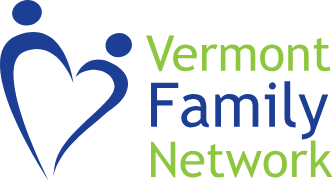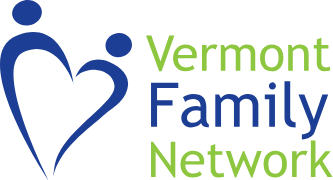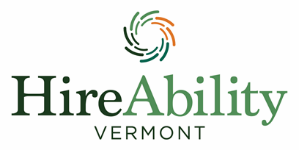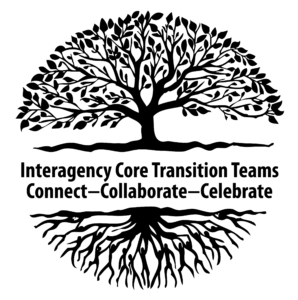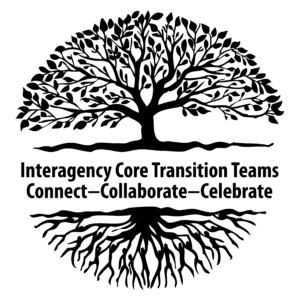
Events/Trainings/Opportunities
May 29, 2024 – 6th Annual Youth Summit/10-1pm/ Hilton Double Tree/ South Burlington
May 17, 2024 – 19th Annual Transition and Career Conference
May 4th, 2024 – The 3rd Annual VT Deaf, DeafBlind, Hard of Hearing Inclusive Plus. Day will be held in Randolph on May 4th. Registration details coming soon. This is our third year of hosting, and we hope to expand the number of vendors and community members that attend. Contact [email protected] with questions.
CCV Learning Center (virtual options through Zoom)
Vermont Partner Resources
- Northlands Job Corps Toolkit
- Vermont Success Stories
- Project SEARCH at Dartmouth Hitchcock
- Webinar Recording: CAPE-Youth Webinar on Justice Involved Youth. Link to recording: webinar recording here and slide deck: slide deck here. As a follow-up to the webinar, CAPE-Youth’s latest policy brief “Transition Services for Justice Involved Youth and Young Adults with Disabilities: Rehabilitation and Recovery Practices” is out now.
- Webinar Recording: HireAbility VT Services for Youth with Hearing Loss. Slide deck attached, link to the recording can be found on the Vermont Family Network platform HERE.
- Transition Toolkit for Youth with Disabilities (VFN)
- Family Guide to Transition Services in VT (VFN)
- JOBS: Jump On Board for Success Webinar on VFN Youtube Channel (VFN)
- Helping Families and Students Understand Their Benefits and Earning Potential When on SSI (VFN)
- Increasing Access, Opportunity, and Equity for All Learners: A Community-School Approach to Dual Enrollment Webinar with Jess DeCarolis AOE and PPT (VFN)
- Career Assessments Preferred Tools Checklist(HireAbility)
- HireAbility VT’s Summer Exploration Program (VFN)
- Learn Earn and Prosper (LEAP) (VFN)
- Colleges and Careers: Personalized Support Planning (VFN)
- Essential Transition Services Crosswalk Draft (VTAOE)
- Acronyms for Crosswalk (VTAOE)
- Indicator 13: Secondary Transition Planning (John Spinney) (VTAOE)
National Partner Resources
- Education and Training Resources Insight
- For Students: Self-Advocacy: Find the Captain in You! (PACER)
- For Parents/Families: Paving the Way: Parent Tips for Supporting Success in High School and Beyond (PACER)
- For Professionals: Effective Vocational Rehabilitation Services for Transition-Age Youth with Disabilities (ThinkWork! at the Institute for Community Inclusion, UMASS)
- Rochester Institute of Technology Tech Tigers
- RIT Explore Your Future Program
- What You Need To Know About Your Supplemental Security Income (SSI) When You Turn 18 (Publication No. 05-11005) (Social Security Administration)
- Advocating For LGBTQ Students with Disabilities a Guide for Educators and Parents/Guardians on Supporting LGBTQ Students with and IEP or 504 Plan (Human Rights Campaign Foundation)
- My “Must have” Papers Tip Sheet Managing the Paperwork of Adulting (UMASS Medical School)
Youth Advocacy Council Resources
Purpose
Core Transition Teams increase capacity at the local level to develop, provide, and manage an effective transition process for students. It has been shown that this coordination of services from multiple agencies provides effective case management and enhancement of post school outcomes for students. Recognizing that communities will have their own individual approach, it is important that all high school special education staff, Agency of Human Services (AHS) staff, and community partners have access to the support of a Local Core Transition Team.
Functions & Activities
For Individual Students
- Ensure a mechanism for consent and confidentiality of student information.
- Work with school staff to identify students with disabilities who are age 14 or older who may need “transition services” that involve inter-agency partners (VR, DS, etc.)
- Identify available resources and supports pertaining to individual students needs and desires for life after high school.
For Systems Improvement
- Share resources and information, make connections with providers and provide training to encourage the use of best practices.
- Provide input and information to local and regional school and policy boards regarding broader transition issues, especially when there are local obstacles (policy, practice, procedure) that stand in the way of successful transition.
- Liaison with the other transition initiatives.
Membership
Team Membership
HireAbility Transition Counselors or other agreed upon community partner will convene the Team as the facilitator. Core Transition Teams should include key members from the school, adult agencies and the community who are involved/concerned with the transition of students from school to adult life. Potential members may include, but are not limited to:
School Representation
- Special and regular education teacher
- Special education coordinator
- School counselor
- Principal and/or special education director
- Work-based learning coordinator
- Students
- Family members
- Vocational training specialist
Adult/Community Representation
- HireAbility VT representative
- Youth employment specialist (VABIR)
- Business account manager
- Division for the Blind and Visually Impaired representative
- Department of Mental Health representative
- Department of Labor representative
- Department of Health representative
- Department for Children and Families representative
- Local JOBS coordinator
- Post-secondary education representative
- Adult Learning representative
- Vermont Family Network representative
Team Format
Depending on the needs of the school and community, teams typically meet either monthly or quarterly throughout the school year. It is suggested that these Teams meet directly before or after other regularly scheduled meetings if they have similar partners involved. When discussing individual student issues, the focus is student centered and the planning should revolve around that student’s individualized desired outcomes. Teams often work best when the roles of facilitator, timekeeper, minute taker, and observer are shared, and the success of the team is a shared effort among providers.
Characteristics of Effective Teams
- Establish a clear Purpose and Mission; “Why are we here?”; revisit this with the team often
- Establish co-leadership and membership responsibilities
- Identify outcome-related next steps, i.e., Transition Fair
- Maintain a group structure/process
- Keep meetings simple and be mindful of school calendar
- Have an agenda, facilitation, and take minutes
- Identify and involve key players, especially education
- Assure that all team members are or become skilled in transition issues (provide training)
- As members leave, replace them
- Establish open communication and use of communication hub when appropriate
- Establish that it is inclusive of all community organizations
- Utilize Sub-committees/work groups, especially in larger teams
- Focused themes
- Identify needs (gaps)/what’s going well
Interagency Core Team Collaboration Event 2019
The Interagency Core Team Collaboration Event took place on October 15, 2019 at the Killington Grand Hotel. The theme was empowering youth and families in transitions to adulthood. This was a professional development day dedicated to improving the transition to life after high school for students with disabilities.Over 250 people attended!
Interagency Core Team Collaboration Event 2020
- Event Registration
- Documents from Event
- Workshop Summaries and Keynote Bios
Keynote Presentations and Introductions
- Jacqui Kelleher, AOE, Director of Special Education
- Adene Karhan, Engagement with Youth
- Monica Hutt, DAIL Commissioner
- Brenda Simmons and Christine Johnson (WINTAC) Work Based Learning Experiences in a Virtual World ( WINTAC)
Presentations
Workshops:
- Youth Voice
- Apprenticeship and Pre-Apprenticeship Options for Students and Youth
- Post-Secondary Transition Planning
- Assistive Technology for Transition Aged Youth
- Supporting All Youth with Disabilities in Work-Based Learning Opportunities
- Progressive Education Opportunities: Supporting All Youth to Explore Post-Secondary and Training Opportunities
- Career Assessments: What are these? What is most effective and how do we collaborate on implementation?
- Considering Pandemic Impact on the Labor Market
Interagency Core Team Collaboration Event 2021
Connect-Engage- Energize 2021 Interagency Core Team Event
Keynote: Jacqui Kelleher, State Director of Special Education, Student Support Services Division, Agency of Education
WORKSHOPS
Wellness
Motivational Interviewing—Engagement/Evocation with Youth
Transition Assessment Planning
- PPT Assessment Planning
- Assessment Planning When
- Assessment Planning What
- Assessment Planning Youth
- Assessment Planning Tool
- VR Progress Rubric
- Recording
COVID’s impact on the Labor Market
Youth Voice! Hear the Inspiring Stories from Young Adults with Disabilities who Turned Their Dreams into Reality
Everybody’s Ready for Something: ‘Earn & Learn’ Opportunities for Vermont
Job Development 101
Adapting and Applying the Multicultural and Social Justice Counseling Competency (MSJCC) Framework for Transition Professionals
Interagency Core Team Collaboration Event 2022
Workshops
- DEIA Considerations for Work Experiences/Apprenticeship (PPT)
- The Intersection of Disability and Poverty: Implications for Participation in Social Service Programs
- Supported Decision Making and Transition Planning
- Issues of Identity and Disability Pride: The Importance of Self-Advocacy
- Youth Voice: Youth Advocacy Council and Statewide Youth Council
Interagency Core Team Collaboration Event 2023
Keynote Presentation by Val Mazotti “Interagency Collaboration & Self-Assessment”
Valarie Mazzotti believes interagency collaboration is critical to ensure that youth and young adults achieve positive in-school and postschool outcomes. This keynote presentation will focus on innovation in interagency collaboration and how interagency collaboration is a critical component in the transition planning process, including stakeholder roles and responsibilities. Discussion will revolve around the predictors of postschool success that support interagency collaboration and the importance of assessing collaborative partnerships.
Keynote Materials:
- Predictor Implementation School /District Self-Assessment Instructions and Action Planning Guide
- Predictor Implementation School/District Self-Assessment
- Collaboration Framework
Workshop Topics:
- Interagency Collaboration
- Universal Design for Learning PPT
- Using Career Assessments PPT
- Postsecondary Education Consortium PPT Presentation (PSE Matrix)
- Indicator 13 Success Stories:
Core Team Winter Summit 2024
Summit Resources
- DS Transition Guidance for Teams
- Winter Core Team Summit 2024 Slides
- Business Marketing Trifold Brochure
LINKS DISCUSSED:
- AOE Graduation Readiness Tool:
- Vermont Family Network Transition Toolkit:
https://www.vermontfamilynetwork.org/what-we-do/family-support/transition-to-adulthood-toolkit/
- Project SEARCH Info (brochure attached):
- College Steps Info:
https://www.collegesteps.org/vermont
- Think College Info:
https://www.uvm.edu/cess/cdci/welcome-think-college-vermont
- The SUCCEED Program Info:
https://howardcenter.org/developmental-services/succeed/
Youth Advocacy Council
About the Youth Advocacy Council HireAbility
This group is comprised of youth and young adults with disabilities, who express interest in participating in both leadership training and opportunities to impact how Vermont prepares students with disabilities for life after high school. The council has a supportive steering committee facilitated by HireAbility VT and its youth advocacy partners.
The Annual Youth Summit
Through support from the Youth Advocacy Steering Committee, the Youth Advocacy Council plans an annual Youth Summit. This event brings together youth and young adults from across the state to discuss issues most relevant to them and learn about how they can empower themselves in all aspects of their educational, social, and career experiences. Driven by youth for youth.
